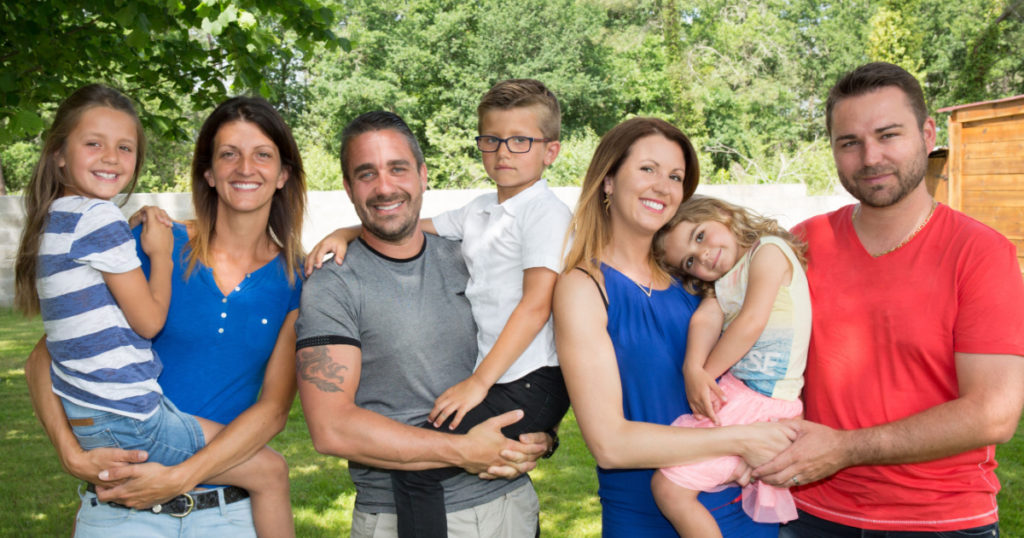Becoming an adult requires us to face some hard realities. For instance, I’m sure all of us had a wake-up call when we realized becoming an adult means working all day just to afford the necessities. Some of us even begin to realize that our parents were not all they were cracked up to be. We harbor anger and resentment towards them, and the crummy childhood none of us asked for. Yet, holding on to anger only hurts ourselves and those closest to us. Many of us are on a journey to forgive our parents for what happened in our past, but how do we do that? The journey isn’t easy, but to help make it a little smoother, here are 12 tips to help forgive your parents
1. Forgive not Forget

It’s okay if you remember all the horrible and unacceptable things that happened in your childhood. Whether your parents left you home alone too many times, or maybe they introduced one too many traumatic events into your life. We don’t need to forget the awful things that happened to us in life to forgive. Forgetting something and forgiving something are two very different things [1]. Remember that.
Read More: Ashton Kutcher, Mila Kunis don’t believe in bathing their kids or themselves too much
2. Tell your story

Have you heard things are easier when you talk to someone about it? Well, it’s true. Additionally, it’s one of the first steps you can take when forgiving your parents for your childhood.
If you are struggling to find someone to share your story with here are some ideas [1]:

- Friends and family members
- A therapist
- People with similar experiences (maybe in group therapy)
- A helpline
- A journal (sometimes sharing your story starts with being honest with yourself)
3. Grieve First. Forgive your parents later.

Maybe you dreamed of a perfect childhood, and you are struggling to come to terms that your childhood and relationship with your parents isn’t what you dreamed it would be. Take some time and grieve. Grieve for yourself, your childhood, any situation you felt anything but supported. Most importantly, grieve for the relationship you wish you have with your parents [1]. When you take time to grieve and properly feel the emotions you’ve been suppressing, you’ll feel lighter and more willing to forgive and forget.
4. The past isn’t the present

Just like it’s important to separate forgiveness from forgetting, we need to separate the past from the present. Events from the past are, well, in the past. Don’t get me wrong, their effect and pain can still linger, but the actual incident is done [1]. That goes for people, relationships, and other relatable circumstances too. Everything in life is evolving, and holding things to their past characteristics will only hurt us in the long run.
Read More: Expert Says Teaching Swear Words To Your Kid Is Actually A Good Thing
5. Today is a new day

In addition to relationships evolving, so do our families. New people are added, children are born, and ultimately, the dynamic is bound to change. Be present with your family today. Allow yourself to enjoy your family and everything that makes them great in the present [1]. Once you do this, the past will seem much more distant than you remember.
6. It’s your wellbeing. Own it

It’s easy to blame our state of mind on someone else. And, when things happen between you and your parents growing up – it’s even easier. However, it’s important to remember that holding negative energy and anger will only hurt you [2]. It’s time to take back your wellbeing. Own it. Because we can’t change what happened in the past, and definitely can’t wait for someone (cough cough, mom and dad) to swoop in and change our mindset now. So, are you going to live life angry with your parents? Or, are you going to claim back your wellbeing? The choice is yours.
7. Forgiveness is self-love

Holding on to past does nothing but inflict harm on who you are now. When we release the pain, we can help free ourselves from trauma. Loving yourself means breaking free from victimhood. One way to do this is to remember that your parents did the best they could to raise you. It’s up to you to provide yourself with the love they weren’t able to provide [2].
8. It’s never too late to forgive your parents

You may be 16, 35, or even 64 years old. Forgiveness doesn’t have an age limit. Carrying pain around can negatively impact your well-being, both mentally and physically. Additionally, just because you’ve been carrying around pain and trauma for longer doesn’t mean you have to continue [2].
Read More: Lying Down With Your Kids at Night While They Fall Asleep Is Not a ‘Bad Habit’
9. Break the Cycle

Often, what happens to one generation has ripple effects on the next. If you are carrying around pain and anger from your childhood, make sure this doesn’t affect your children. By letting go and forgiving those who have hurt you, you will be able to focus on what truly matters (your kids, job, and happiness) and break the cycle [2].
10. Create Realistic expectations

Are you ready to forgive? That’s great. But remember to set expectations. For example, your parents might still be the same people as you remember. Remember that, and understand what their less-than-favorable qualities have to do with you. When we set realistic expectations, we are less likely to be disappointed [3].
11. Forgiving your parents isn’t easy. Acknowledge it’s a journey

Like other things, forgiveness is a journey. You will likely have ups and downs, and it might take some time, but there is a light at the end of the tunnel. And that light is your self peace [3].
12. If you forgive your parents, let them back into your heart

We become much happier people when we start recognizing the good in people. And your parents, no matter how little you may think, have good in them. Hold on to that. Acknowledge their good qualities. You might find forgiveness a little easier this way [3].
Read More: 2-year-old not admitted to nursery because her deformed skull is ‘too scary’
Sources
- “Unresolved Anger Towards Our Parents.” Psychology Today. Imi Lo May 16, 2019.
- “Forgiving Your Imperfect Parents… Even If You’re 64.” Huff Post. Panache Desai. August 5, 2019.
- “Forgiving Your Parents.” Oprah.

